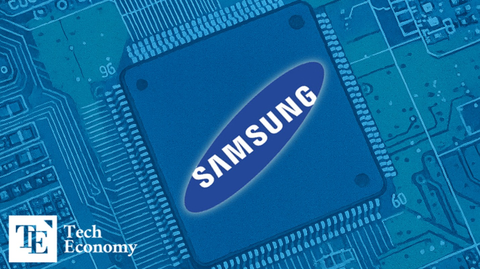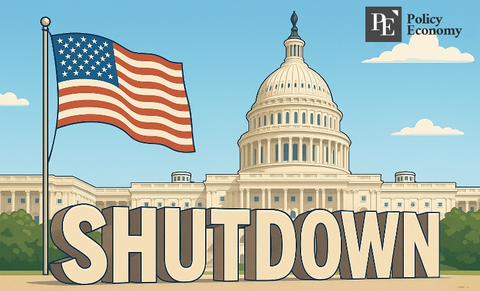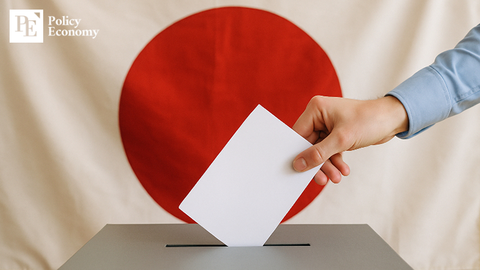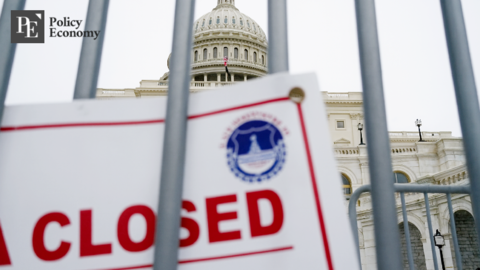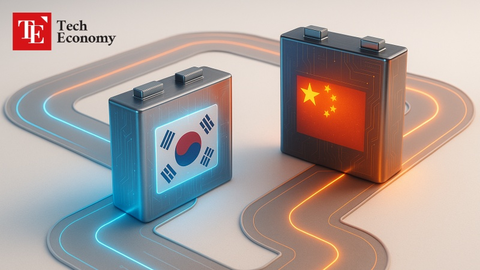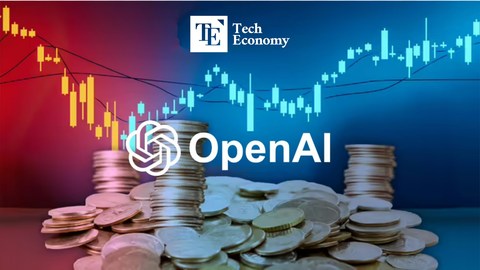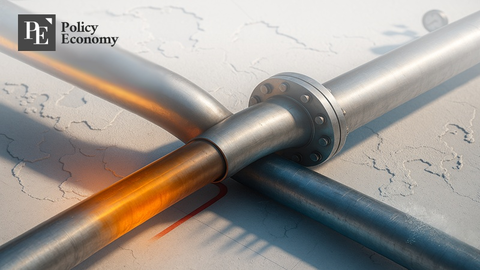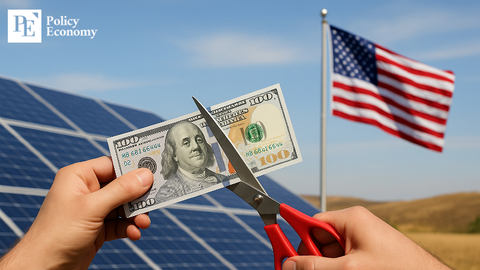Trump Group Throws Hat into Smartphone and Telecom Market, Faces Criticism over ‘Selective Patriotism’
Input
Modified
"Part of Global Business Expansion" "High Likelihood of Overseas Production" "U.S. Telecom Market Offers Growth and Sustainability"
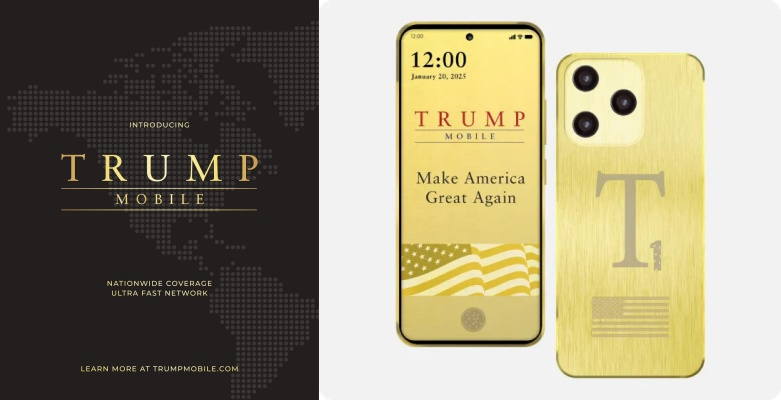
The Trump family’s venture into the smartphone and telecom industry has ignited a flurry of attention—and controversy. With a gold-colored device proudly branded with “Make America Great Again” and a suite of telecom services bundled under “Trump Mobile,” the initiative unmistakably courts Donald Trump’s conservative base. Yet, behind the patriotic messaging lies a complicated web of contradictions, particularly regarding overseas manufacturing and ethical concerns that once again blur the line between politics and personal business.
As Trump continues to promote a nationalist, America-first economic agenda, critics are pointing to what they call “selective patriotism”—a convenient disregard for his own standards when business interests are involved. This venture, observers argue, not only exposes those contradictions but also raises new questions about how far the Trump brand is willing to go in transforming political loyalty into consumer capital.
A Bold Launch Blurring Political and Commercial Lines
On June 16, Donald Trump Jr. and Eric Trump convened a press conference at Trump Tower in New York to announce the official launch of Trump Mobile, their family's newest foray into the tech and telecom space. The Trumps laid out their ambitious vision: to challenge dominant telecom operators like AT&T, Verizon, and T-Mobile, while also entering the competitive hardware arena alongside Apple and Samsung.
“This is more than just a phone—it’s a movement,” declared Eric Trump, emphasizing their goal to both innovate the telecommunications industry and transform Trump Mobile into one of the world’s top tech platforms.
Instead of building its own telecommunications infrastructure, the Trump Mobile service will operate as a Mobile Virtual Network Operator (MVNO), which means it will lease access to existing networks. This approach is akin to South Korea’s "budget phone" model. The announced USD 47.45 monthly plan promises to deliver nationwide 5G coverage, free international calls to over 100 countries, 24-hour roadside assistance, and remote medical consultations—an expansive package targeting both convenience and security. The service is expected to launch in August, although the company has not revealed its network partners or service providers.
Alongside the telecom plan is the T1 smartphone, a signature gold-colored device emblazoned with the U.S. flag and Trump’s 2016 campaign slogan. The phone runs on Android 15 and comes equipped with a 6.8-inch AMOLED display, a 16-megapixel front camera, a 50-megapixel main camera, 12GB of RAM, and 256GB of internal storage. It is set to retail for USD 499.
However, the timing and optics of the launch have triggered fresh scrutiny. Despite Donald Trump’s public claims of disengagement from the daily management of his family’s enterprises, the Trump Organization continues to expand aggressively into new sectors—from real estate and media to cryptocurrency. One of its newer ventures, World Liberty Financial, a crypto firm launched in October 2024, has already amassed more than USD 57 million in revenue, according to the U.S. Office of Government Ethics.
With this latest move, many critics believe Trump is once again testing the ethical boundaries between his business interests and political identity, raising concerns about using public office to fuel private gain.
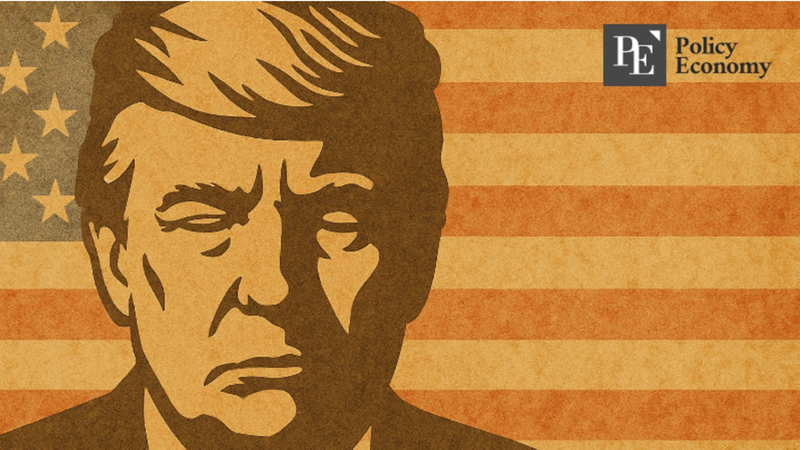
The Patriotism Dilemma: Made in America—or Not?
The Trump family’s messaging around the launch touts American values and patriotism. Yet, the venture’s apparent dependence on foreign supply chains starkly contradicts Donald Trump’s longstanding rhetoric on manufacturing and economic nationalism.
Just one month before the Trump Mobile announcement, the former president issued a public threat to impose tariffs exceeding 25% on smartphone manufacturers such as Apple and Samsung if they failed to relocate their production facilities to the United States by the end of 2025. While the message was widely seen as targeting Apple’s new factory in India, Trump was clear that Samsung, too, would not be spared.
These pronouncements earned him praise from conservative supporters, who have long championed his “America First” approach. But Trump Mobile’s manufacturing model seems to fly in the face of these values. Given that the majority of smartphone components and devices sold in the U.S. are assembled overseas, industry experts argue that large-scale domestic production is not only improbable—it’s virtually impossible.
The Washington Post, citing an anonymous telecom insider, remarked: “Building a supply chain takes time. If making smartphones domestically were that easy, other companies would have done it already.”
Garrett Schneemann of Counterpoint Research reinforced this skepticism, suggesting that the Trump T1 phone bears a strong resemblance to T-Mobile’s REVVL 7, a model currently manufactured in China. Though Trump Mobile has not confirmed the origins of the T1’s production—and the phone has yet to be released—its similarity to an already existing Chinese-made model has fueled speculation that the Trump Group is relying on the very same global supply networks Donald Trump has consistently condemned.
This contradiction has prompted many to accuse Trump of espousing “selective patriotism”—wielding nationalist rhetoric when politically expedient, while making business decisions that rely on the same international systems he claims to oppose. If confirmed, this would further erode the credibility of his oft-repeated pledge to “bring manufacturing back to America.”
Political Loyalty as a Business Model
While the Trump Group’s patriotic messaging has captured attention, market analysts suggest that the true driving force behind the venture may be less ideological and more financial. The U.S. telecom sector, after all, is a lucrative and relatively stable industry—especially when paired with a strong subscriber base.
The success story of the T-Mobile and Sprint merger offers a telling precedent. Historically trailing behind AT&T and Verizon, the combined entity quickly shot up to second place in market share post-merger. T-Mobile’s stock surged by over 70% in a single year, thanks in large part to aggressive investment from SoftBank Chairman Masayoshi Son, who held an 88% stake in Sprint. His bold infrastructure spending transformed the competitive landscape.
The U.S. telecom industry is known for its high entry barriers but reliable revenue streams. Once network infrastructure is secured, companies can offer bundled services—cable, internet, mobile—and lock in long-term subscriptions. These structural advantages make the industry appealing for investors willing to commit at scale.
Observers believe the Trump Group sees an opportunity to apply this model to its advantage. Already, bundling smartphones with telecom plans is a proven cash-generating strategy in the subscription economy. When combined with Trump’s powerful political brand, the result could be a new, self-reinforcing business model grounded in customer loyalty rather than technical superiority.
In this light, the Trump Mobile venture is more than just a business—it’s an extension of Trumpism into the consumer marketplace. By turning political allegiance into economic capital, the Trump Group may have found a way to convert its supporter base into long-term paying customers. As many market experts see it, the convergence of political identity and product loyalty is not a bug in the Trump economic strategy—it’s the entire feature.

